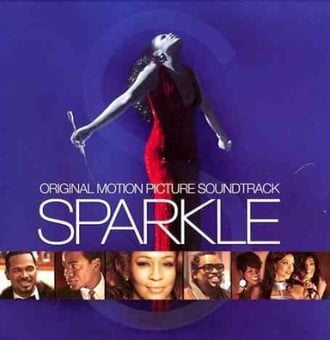
Energy that’s let out at a performer’s whim can dissipate into the air energy that’s shaped and guided has the power to move an audience like nothing else.Ī track-by-track rundown of Sparkle‘s high points would be tiresome, but one Franklin/Mayfield collaboration, “Rock with Me,” deserves special praise.
#Original sparkle movie soundtrack 1976 how to
This may sound terribly calculated for an artist as emotive as Aretha, but the most successful pop producers have always known how to channel excitement. When she ad-libs, which is often, the results don’t just mark time between verses, they carry the song further along its developmental path. Aretha has always sung with passion, but here, due no doubt to the producer’s directions, the passion rises and falls along carefully plotted curves. The most satisfying aspect of the spectacular vocal performances that dominate the album is Mayfield’s channeling of their energy. Aretha may be singing with tracks which are slick and occasionally overproduced, but she is singing her heart out. Sparkle is more obvious - one often feels a certain tension between the singer and the prerecorded tracks - but ultimately its manufactured sound isn’t very important. They were as carefully put together as any great pop records, but the seams didn’t show. It never quite scales the heights of the early Atlantic sides, which were recorded in the South and often sounded like off-the-cuff testifying from the back of the church. Instead, it is her most consistently exciting album in some time. Sparkle, which consists of Mayfield’s tunes from the motion picture of the same name and a few extra originals, could easily have been a cheap shot, a momentary deviation from the mainstream in Aretha Franklin’s career. Mavis Staples and Aretha are probably the most distinctive singers in the field, and although Mayfield’s work with them has suffered somewhat from sameness of material and of instrumental sound, he has understood their voices.

But Mayfield understands the gospel roots of the most powerful black pop vocalists as well as, if not better than, any producer alive, and he’s carried this understanding from his earliest sides with the Impressions right on up to his latest work with the Staple Singers and, now, Aretha Franklin.


There’s a swirling harp every time you turn around, the syncopated horn figures lie just so against the bass and drums, and there is often a surfeit of trebly percussion instruments like bells, chimes and cymbals. The instrumental tracks Curtis Mayfield produces at his Curtom Studio in Chicago always sound a little contrived. Review by Robert Palmer, Rolling Stone, August 12, 1976 Palmer’s original review of the record is pretty spot-on so I am including it here (even his observations of Curtis’ production “formula” by the mid-70s is on point - I just happen to still really like his formula.) Apparently, the film was remade in 2012, which I didn’t even know until making this blog post. I’ve never seen the film and am not in a huge hurry to see it: this was the era of soundtracks being exponentially better than their associated films, after all. They also covered (less memorably) ‘Hooked On Your Love’ from this album. The first track that really jumps out at you from this album is “Giving Him Something He Can Feel,” which – if I am completely honest with my readers, and when am I not? – I almost definitely first heard as the cool remake by En Vogue in 1992. These two titans both managed to be pioneers in their field, voices for civil rights and black liberation, and tremendously successful commercially, so they are on the short list of artists who can tick all those boxes. But I’ve been happily busy “in the real world” and am well overdue for a blog post, and rather than add my own verbosity to the amen corner praising Aretha, I thought I’d just share one of her under-appreciated gems, a collaboration with the luminous Curtis Mayfield.

Some well-done, some shallow and superficial. There have been no shortage of eulogies and retrospectives on the life and career of the great Aretha Franklin in the last few weeks. Producer, composed and arranged by Curtis Mayfield


 0 kommentar(er)
0 kommentar(er)
